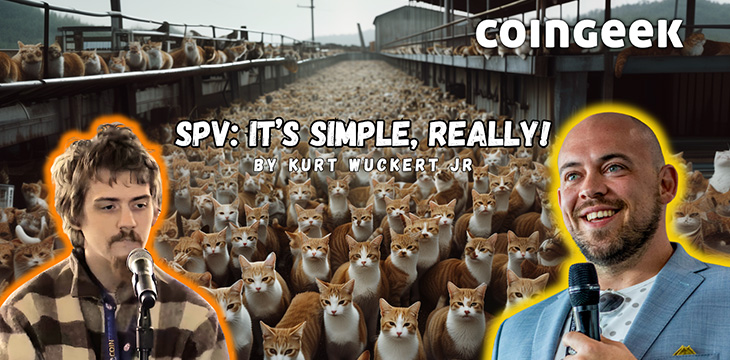
|
Getting your Trinity Audio player ready... |
This article was first published on Dr. Craig Wright’s blog, and we republished with permission from the author.
Traditionally, the United Kingdom has been an open society (OS)1. In a neoliberal context, an open society incorporates open education, open access to data, and free speech. Initially described by the French philosopher Henri Bergson2, in 1932, the concept of an open society was further defined by Karl Popper3. The best way to describe an open society is to contrast it with one that is closed. Bergson noted that a closed society was analogous to a closed mind with a fixed system of law and religion, one that is not subject to change through rational decision-making processes. As Popper notes, open societies have evolved past the tribal state. Open societies oppose the magical or tribal collectivity and collectivism in a system of individualism that confronts the citizens of such a society with personalised decisions and choices.
The United Kingdom has a long history of open, liberal government. But, as Niblett notes, many ideals of liberalism are globally under attack, and so it is indeed the case in the United Kingdom4. Following World War II, the United States and the United Kingdom sought to promote liberal values and to implement a system that would devalue collectivist and tribal activity. For many years, they were successful, leading to the fall of the USSR and the promotion of freedom as a global goal. Britain acted within a global framework that ensured “that government who mistreat their population and foment instability forfeit the sovereign right to rule”5. The year 1998 saw the creation of the International Criminal Court, and British Prime Minister Tony Blair enacted a doctrine of liberal interventionism to promote a world of growing interdependence and freedom whilst nations were to uphold the “responsibility to protect” those who were weaker.
The United Kingdom voted to leave the European economic community of which it had been a member since 1973. Faced with growing euro-skepticism and increased problems of internal violence and partisan politics, many in the United Kingdom have rallied against the nature of the open borders of the Schengen Area. In a manner analogous to the political situation in the United States, the United Kingdom has been formed alongside partisan lines6. The increased division is leading to a strong probability of growth of “holism” and the atavistic “longing for the lost unity of tribal life”7. The promotion of isolationist policies and the rejection of trade agreements will likely have a strong negative impact on the economic outlook for the nation [8]. When coupled with the economic downturn associated with the Covid-19 crisis, the U.K. is likely to face a decade of slow growth, leading to further insularization and political division.
The existing threats to open society are manifestly expressed in the closing of borders and the rejection of free-market economics. When coupled with the promotion of fear, uncertainty, and doubt (FUD) in the current pandemic, they lead to a worrying state of tribalistic political brinkmanship. The increasing control of the media and the concentration of communication power through a small number of partisan corporations have led to the development of strong divisions within society. The traditional working-class voters have lost faith in the Labour Party, whilst many supporters of the Conservative Party have lost faith in the government9. A troubling rise in minority and ethnic groups and a marked increase in intolerance have created a potential bonfire.
Romans 12:2 reminds us, “do not be conformed to this world, but be transformed by the renewal of your mind, that by testing you may discern what is the will of God, what is good and acceptable and perfect.” As Callinicos remarks, the current move to exclusionism is creating a series of socio-economic restructures, forming a potential crisis of the long-term survival of the liberal order10. It is not for those in society to judge11 others when they do not interfere with the rights of those in society. At the same time, citizens need not become disinterested. The collapse into nationalist groups is likely to coincide with the development of many smaller nations with closed societal outlooks. In many ways, the collapse into partisan fractionalisation is problematic and likely to lead to a decline in economic growth and the provision of justice throughout society. Great Britain’s increasing rejection of liberal ideals and Western Christian societal beliefs is a rejection of the very forces that, at one stage, had made the British Empire great.
The United Kingdom is sitting between the brink of continuing to develop a liberal order and growth and the regression to tribalisation. The current decade will be critical. If the United Kingdom fails to adhere to previously defined liberal values, the collapse into a tribal state may lead to a slow decline and possible further collapse. Such a scenario would result in destabilisation.
Footnotes
[1] Davis, Philip M. 2009. “How the media frames “Open Access””. The Journal of Electronic Publishing 12 (1).
[2] Bergson, Henri. “Les deux sources de la morale et de la religion.” Verbum 26, no. 83 (1933): p-107.
[3] Popper, Karl R. The open society and its enemies. Routledge & Kegan Paul, 1945.
[4] Robin Niblett, “Liberalism in Retreat: The Demise of a Dream,” Foreign Affairs 96, no. 1 (January/February 2017): 17-[ii].
[5] Ibid. p. 18.
[6] Hobolt, Sara, Thomas J. Leeper, and James Tilley. “Divided by the vote: affective polarization in the wake of the Brexit referendum.” British Journal of Political Science (2020).
[7] Popper, 1945. p. 80.
[8] Danziger, James N., Lupo, Lindsey, and Smith, Charles A. Understanding the Political World (13th ed.). Boston: Pearson, 2020.
[9] Ford, Robert, and Goodwin, Matthew. “Britain after Brexit: A nation divided.” Journal of Democracy 28, no. 1 (2017): 17-30.
[10] Callinicos, Alex. “Britain and Europe on the Geopolitical Roller-Coaster.” Competition & Change 21, no. 3 (June 2017): 185–98.
[11] Matthew 7:1.
References:
Bergson, Henri. “Les deux sources de la morale et de la religion.” Verbum 26, no. 83 (1933): p-107.
Callinicos, Alex. “Britain and Europe on the Geopolitical Roller-Coaster.” Competition & Change 21, no. 3 (June 2017): 185–98. https://doi.org/10.1177/1024529417700428.
Danziger, James N., Lupo, Lindsey, and Smith, Charles A. Understanding the Political World (13th ed.). Boston: Pearson, 2020. ISBN: 9780135215418
Davis, Philip M. 2009. “How the media frames “Open Access””. The Journal of Electronic Publishing 12 (1). doi:10.3998/3336451.0012.101
Ford, Robert, and Goodwin, Matthew. “Britain after Brexit: A nation divided.” Journal of Democracy 28, no. 1 (2017): 17-30.
Hobolt, Sara, Thomas J. Leeper, and Tilley, James. “Divided by the vote: affective polarization in the wake of the Brexit referendum.” British Journal of Political Science (2020).
Niblett, Robin. “Liberalism in retreat: the demise of a dream.” Foreign Aff. 96 (2017): 17.
Owen, Erica, and Walter, Stefanie. “Open economy politics and Brexit: insights, puzzles, and ways forward.” Review of international political economy 24, no. 2 (2017): 179-202.
Popper, Karl R. The open society and its enemies. Routledge & Kegan Paul, 1945.

 11-22-2024
11-22-2024


